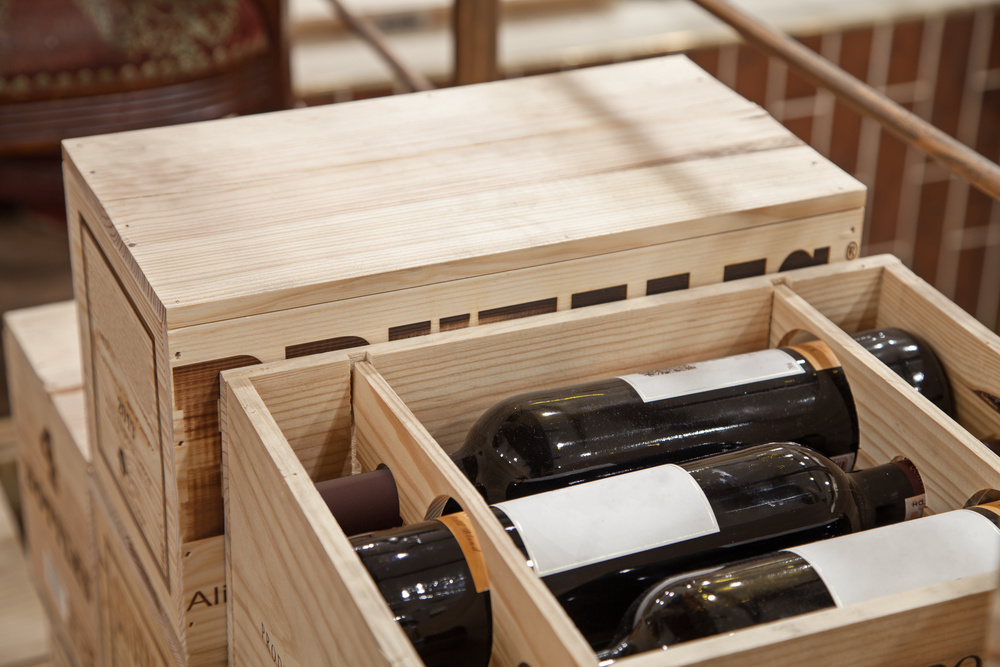Wine gets better with age. However, for this to be true, there are things you need to do and avoid. For example, you should store your wine at the correct temperature and place the bottles correctly. Also, you should avoid storing wine in a refrigerator or shaking it.
If you fail to follow the proper guidelines when storing your wine, you’ll end up with a tasteless and flavourless wine that’s difficult to drink.
How Long Does Wine Last?
While an unopened bottle of wine can last longer than an opened one, it can still expire. Nevertheless, unopened wine can still be consumed two years past the expiry date, so long as it tastes and smells good.
However, it’s essential to note that the wine’s shelf life, whether opened or unopened, depends on the type. For instance, Expert Wine Storage recommends you drink opened red wine within 1-2 weeks, as acid will eventually consume the wine and make it taste like vinegar.
The Do’s Of Wine Storage
Keep It Cool
Heat or temperature changes aren’t suitable for wine. Therefore, you should protect your wine from temperature fluctuations at all costs. The ideal wine storage temperature is between 45 to 65 degrees Fahrenheit.
To be specific, consider storing your wine under 50 to 58 degrees Fahrenheit. It’s important to prevent your wine from warming to over 70 degrees. Otherwise, the wine’s flavour and aroma will be compromised.
When preserving wine, avoid storing it in attics or storage sheds since they can experience temperature variations. Instead, consider storing the wine in a cold basement or at the back of a less-used cabinet.
Store The Wine Away From Light
Light, especially sunlight, can negatively affect the wine’s quality. Light can lead to premature wine aging, affecting taste and aroma. Hence, most wine manufacturers pack their wine in dark-coloured bottles.
Regardless of where you store your wine, preventing sunlight from accessing the bottles is essential. It’s also wise to keep the lights off as much as possible to retain the wine’s quality. If keeping the lights off is impossible, consider investing in incandescent bulbs in your storage room. Such bulbs provide a small amount of UV radiation compared to ordinary bulbs.
The light shouldn’t be a problem if you’re not storing your wine for long. Nevertheless, if you like your wine to have its original taste, it’s best to keep it in the dark.
Store Bottles On Their Side
Besides being accessible and saving space, there’s another reason for storing wine on its side. When a wine bottle is stored on its side, it allows the wine to contact the cork, keeping it moist. It’s vital to note that the cork should always be wet. Once it dries up, it shrinks, allowing air to enter the bottle.
When this happens, the taste and quality of your wine are entirely altered, resulting in a dull, flat wine. However, if your wine bottles have plastic corks, it might not be necessary to store them on their side. But still, you can consider this storage method to save space.

The Don’ts Of Wine Storage
Do Not Store The Wine In A Refrigerator
Contrary to what most people believe, a refrigerator isn’t ideal for wine storage. The best time to put your wine in the fridge is an hour or two before drinking it. Anything beyond that will ruin the quality. While wine should be kept cold, the refrigerator is too cold and can cause the cork to shrink, allowing air to enter the bottle.
It’s also great to avoid storing the wine under freezing conditions. This can expand and force out the cork or break the bottle, leaving you agitated without a bottle of wine to console you. If you’re too much into high-quality wine, investing in a wine cellar is best.
Do Not Shake The Wine
According to experts, shaking a bottle of wine can accelerate the wine’s chemical reactions resulting in its damage. For this reason, most wine enthusiasts are bothered even by electronic equipment vibrations.
While minor vibrations might not significantly affect the wine’s quality, it’s evident that excess vibrations aren’t ideal for wine preservation. Therefore, avoiding too much disturbance is vital to your wine if you’re looking forward to a natural, original taste each time you have a glass.
Do Not Place Your Wine On A Refrigerator
Since it isn’t recommended to store wine in a fridge, most people are used to keeping it on top of a refrigerator. While it might seem ideal for easier access, the fridge generates vibrations during the running cycle that can interfere with the wine elements, resulting in poor-quality wine.
Final Thoughts
Storing wine isn’t challenging. However, you must follow the guidelines for a successful wine storage process. If you’re looking forward to enjoying a flavourful glass of wine, consider adhering to the above-discussed dos and don’ts of wine storage.






